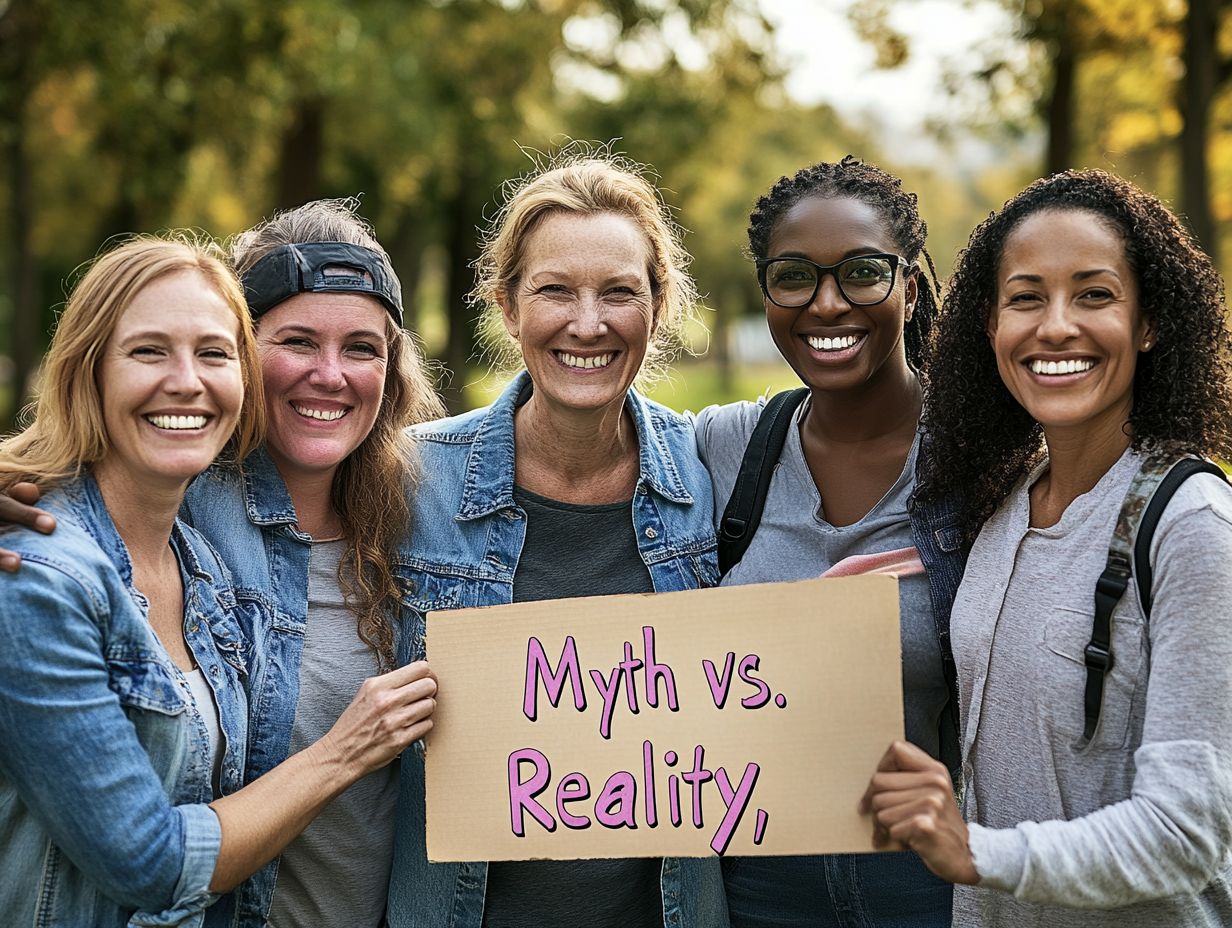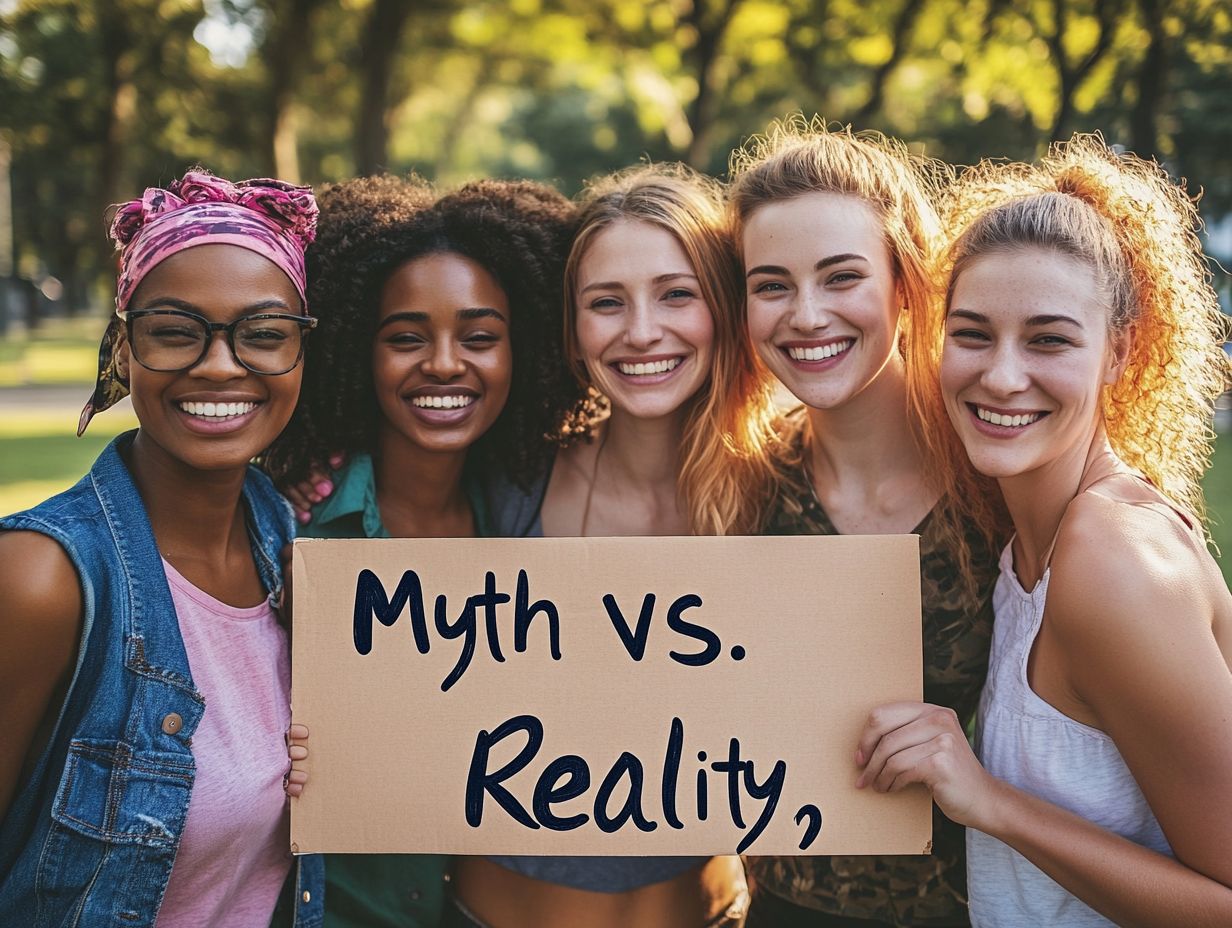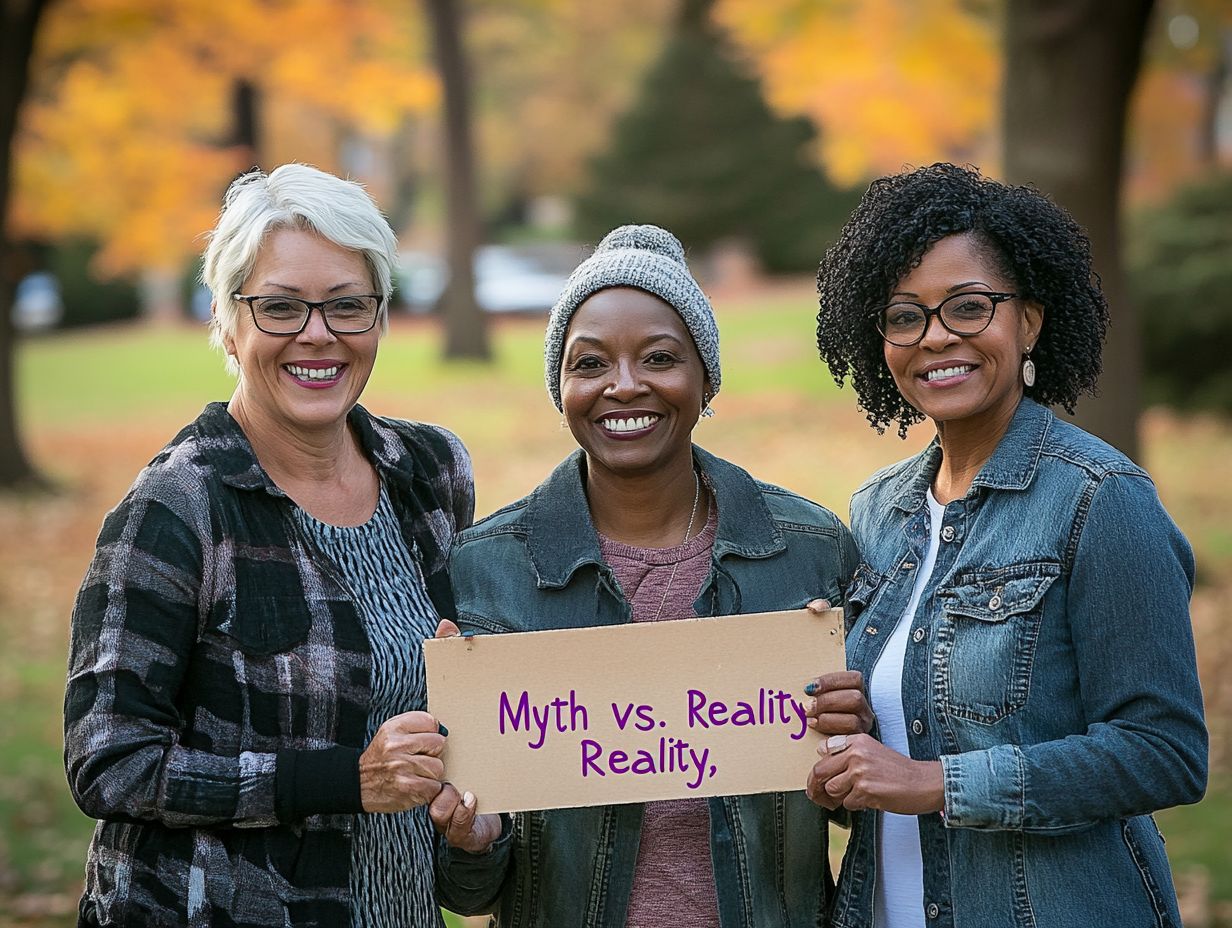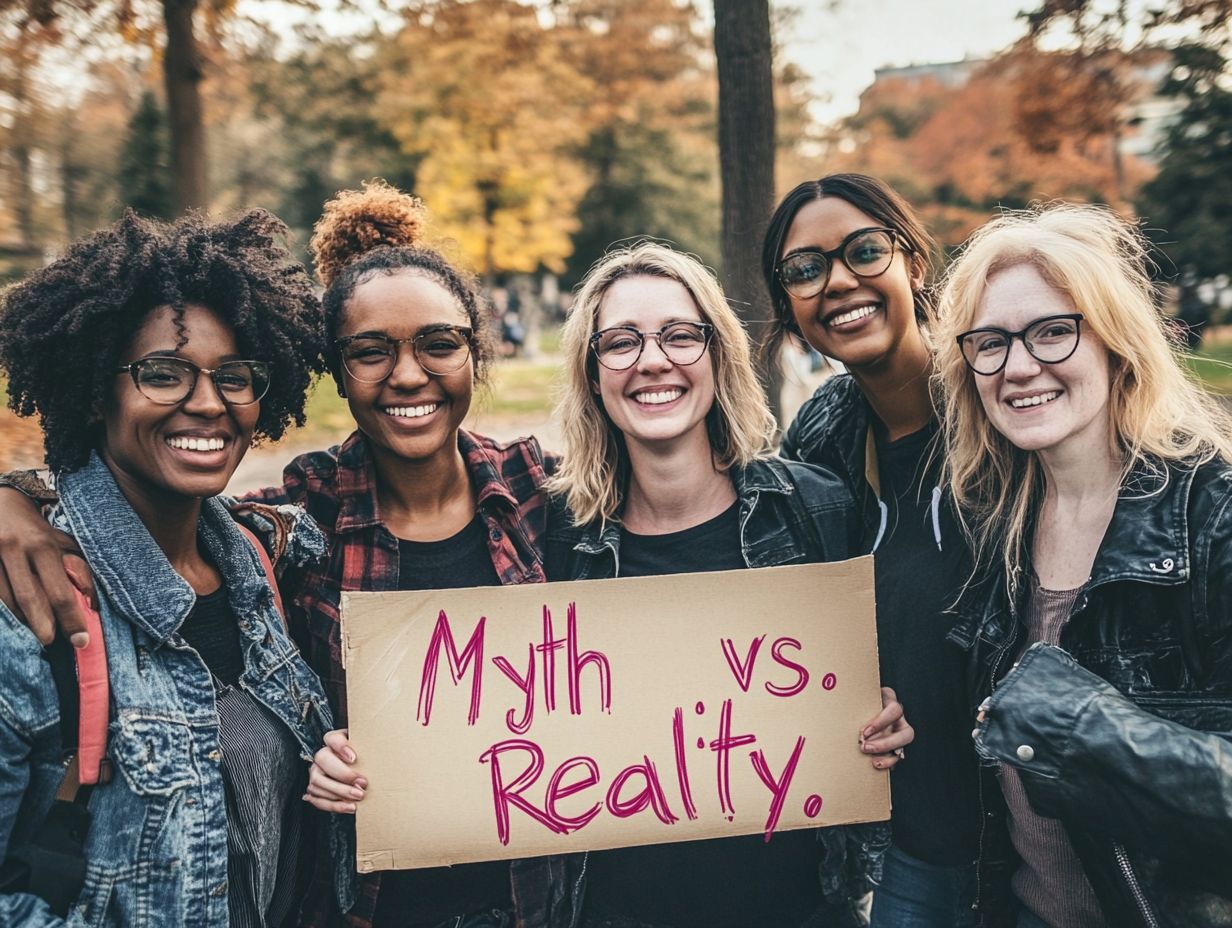Cancer survivorship encompasses the journey of managing physical, emotional, and psychological challenges that persist after cancer treatment. Contrary to common myths, cancer survivorship does not equate to being completely cured, and it affects individuals of all ages, including those recently diagnosed with breast cancer or ovarian cancer, not just older populations.
Each survivor experiences unique side effects, necessitating personalized care and ongoing support. Survivorship extends beyond the end of treatment, involving lifestyle adjustments, emotional changes, and regular health monitoring, with the help of healthcare services, to maintain quality of life.
Despite misconceptions, cancer survivors, including those who have undergone chemotherapy, can lead fulfilling lives by redefining normalcy through community support and personal growth. Understanding these aspects is vital for providing holistic care and enhancing the well-being of survivors.
Key Takeaways:
1. Cancer Survivorship Means Being Completely Cured

Cancer survivorship does not mean being completely cured. Survivorship includes managing long-term physical, emotional, and psychological effects after treatment.
Ongoing health monitoring is crucial for addressing potential side effects and recurrence risks. Emotional changes like anxiety or depression may occur, requiring support from healthcare providers and peer groups.
Understanding that the impacts of cancer treatment, such as metastatic cancer or surgical recovery, can last a lifetime is essential for providing comprehensive support and accurate dialogue about the challenges faced.
2. Cancer Only Affects Older People
Cancer can affect people of all ages, including children and young adults, not just older individuals.
Types of cancer such as leukemia and lymphomas are diagnosed in younger populations, disproving the myth that cancer primarily affects older people.
Early detection is crucial for improving survival rates and outcomes for all age groups.
3. All Cancer Survivors Experience the Same Side Effects
Not all cancer survivors experience the same side effects after treatment.
Each cancer survivor may face different challenges such as chronic fatigue, emotional issues, or social isolation.
Personalized care and support are essential to address the varied needs of cancer survivors.
4. Cancer Survivorship Is Over Once Treatment Ends
Cancer survivorship continues beyond treatment, involving follow-up care, emotional changes, and lifestyle adjustments for long-term health.
Survivors require regular follow-up care, including preventative measures, to monitor recurrence and manage side effects.
Emotional changes include relief, anxiety, and adjusting to a new normal.
Lifestyle changes, like improved nutrition and physical activity, enhance health and resilience, facilitating recovery and reducing feelings of isolation.
5. Cancer Survivors Cannot Live a Normal Life
Cancer survivors can live a normal life by redefining their sense of normalcy through give the power toment and community support.
Survivors often engage in activities, such as joining support groups like Support Connection, that provide emotional backing and help return to regular routines.
New passions or volunteer work may emerge, channeling experiences into personal growth and normalcy.
What Is Cancer Survivorship and Why Is It Important?

Cancer survivorship refers to the phase of a cancer patient’s life following treatment, focusing on health, emotional wellbeing, and quality of life.
Cancer survivorship is important because it addresses the ongoing physical and emotional challenges, such as emotional changes and mental health issues, faced by survivors, ensuring they have access to necessary support and resources for holistic recovery.
What Are the Different Types of Cancer Survivorship?
Cancer survivorship is categorized into three types:
- Newly diagnosed survivors
- Post-treatment survivors
- Long-term survivors
Newly diagnosed survivors are individuals who have recently been diagnosed with cancer and are beginning their treatment journey.
Post-treatment survivors have completed their initial cancer treatment and are transitioning to follow-up care and monitoring.
Long-term survivors are individuals who have been cancer-free for several years and continue to manage long-term side effects and health monitoring.
What Are the Common Challenges Faced by Cancer Survivors?
Cancer survivors face common challenges post-treatment, including managing emotional changes, dealing with mental health issues, and overcoming feelings of isolation.
Physical and emotional scars from treatment may hinder re-engagement in daily activities.
Coping strategies include:
- Seeking therapy
- Joining support groups
- Accessing comprehensive support networks to aid recovery and improve quality of life
How Can Cancer Survivors Cope with Emotional and Mental Health Issues?
Cancer survivors cope with emotional and mental health issues by seeking therapy, joining support groups, and relying on community resources.
Therapy helps survivors process their experiences with professional guidance.
Support groups offer a sense of camaraderie as survivors share personal stories.
Community resources, including peer counselors, provide essential advice and empathy.
What Are the Resources Available for Cancer Survivors?
Cancer survivors have access to resources like healthcare services that offer physical health assessments and rehabilitation programs.
Emotional support is available through peer support groups and counseling services.
Educational programs provide information on lifestyle changes, nutrition, and managing side effects.
Community connections are facilitated by local organizations and online platforms for social engagement and support.
How Can Friends and Family Support Cancer Survivors?

Friends and family can support cancer survivors by offering emotional companionship, practical help with daily tasks, and consistent communication.
Support can include:
- Listening
- Assisting with meal preparation
- Running errands
- Managing household chores
Consistent presence through visits, calls, and messages helps survivors focus on healing, cope with fears, and feel less alone.
What Are the Latest Advancements in Cancer Survivorship Care?
The latest advancements in cancer survivorship care include personalized treatment plans, improved follow-up care, and enhanced emotional support systems that incorporate survivor stories and advocacy efforts.
Personalized treatment plans consider individual histories for tailored recovery.
Improved follow-up care allows for early detection of long-term complications.
Enhanced emotional support systems address psychological impacts like anxiety and depression.
These advancements improve overall survivor wellbeing and address long-term health challenges.
What Is the Role of Diet and Exercise in Cancer Survivorship?
Diet and exercise are crucial for cancer survivorship by enhancing physical health and emotional well-being, supporting recovery, and reducing risks associated with genetic mutations and other risk factors.
A balanced diet with whole foods like fruits, vegetables, and lean proteins supports recovery and immune function.
Regular physical activity, such as walking or yoga, boosts energy levels and reduces anxiety in cancer survivors.
Integrating healthy eating and exercise into daily routines can improve life quality for cancer survivors.
How Can Cancer Survivors Advocate for Themselves and Others?
Cancer survivors can advocate for themselves and others by sharing personal stories to raise awareness.
Survivors can participate in advocacy events to promote cancer prevention and early detection.
Joining support networks provides a platform for dialogue and education, improving healthcare services and offering peer counselors who guide survivors through their cancer journey.
These actions empower survivors to drive change, promote understanding, and advocate for improved patient care.
Frequently Asked Questions
What are the five common myths about cancer survivorship?

The five common myths about cancer survivorship are: 1) all cancers are curable, 2) cancer survivors are unable to have a normal life after treatment, 3) cancer survivors always experience serious side effects, 4) cancer survivors cannot get cancer again, and 5) cancer survivors should be able to bounce back immediately after treatment.
Is it true that all cancers are curable?
No, not all cancers are curable. While there have been significant advancements in cancer treatment, there are still some types of cancers that do not have a cure. However, many cancer survivors are living long, fulfilling lives after treatment.
Are cancer survivors unable to have a normal life after treatment?
No, this is a common myth. While cancer treatment can be physically and emotionally challenging, many cancer survivors are able to resume their normal activities and lead a fulfilling life after treatment. It may take some time to adjust, but cancer survivors can still live a full and happy life.
Do all cancer survivors experience serious side effects?
No, not all cancer survivors experience serious side effects. While some may experience side effects from treatment, many cancer survivors do not experience any long-term effects. It is important to discuss potential side effects with your healthcare team and address any concerns you may have.
Can cancer survivors get cancer again?
Yes, cancer survivors can get cancer again. While the risk may be slightly higher for some individuals, there are many factors, including genetics and lifestyle changes, that can contribute to the development of cancer. It is important for cancer survivors to continue with routine screenings, follow-up appointments, and follow their doctor’s recommendations for a healthy lifestyle. Empowerment through education about risk factors and cancer research can help survivors manage their health better.
Should cancer survivors be able to bounce back immediately after treatment and medical treatment?
No, every cancer survivor’s journey is different and there is no set timeline for recovery. It may take some time to adjust physically with physical changes and surgical recovery, emotionally with emotional changes and fear, and mentally with mental energy and coping mechanisms after treatment. It is important for cancer survivors to have patience with themselves and seek community support, emotional support, and resources when needed. Organizations like Peer Counselors and Support Connection can provide valuable support and guidance. Survivorship often involves dealing with misconceptions, isolation, and finding a new normal. Personal stories and coping strategies shared by others can be incredibly empowering.





